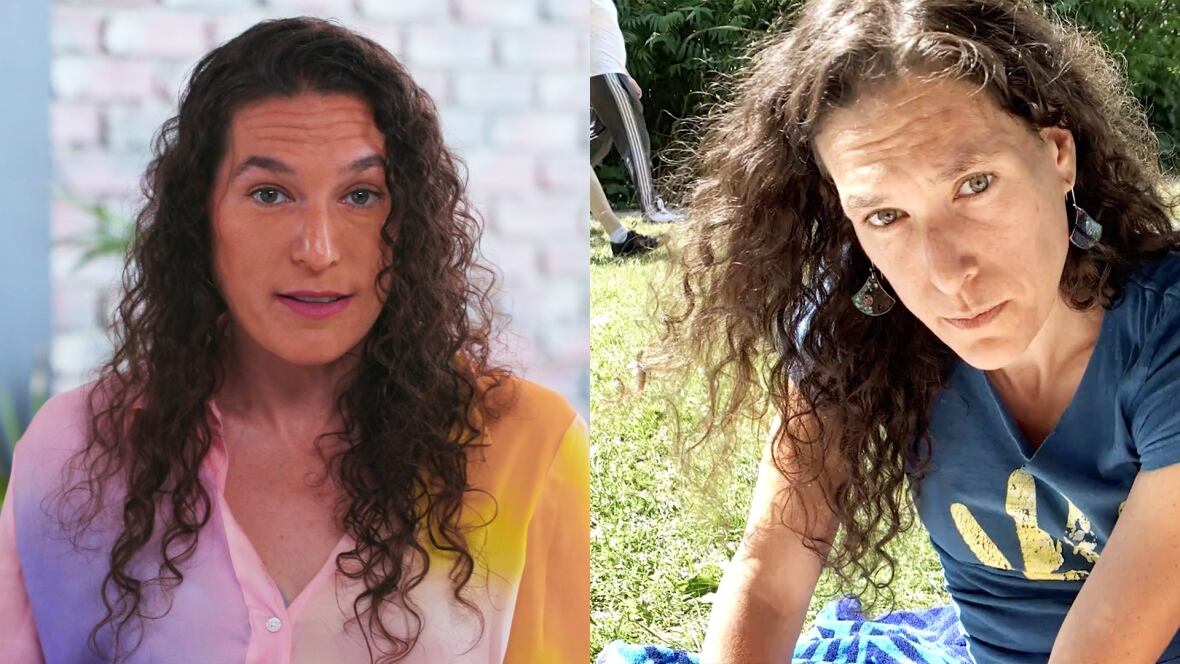How virtual therapy is helping people cope with the pandemic's mental health strains
'I've always seen online [therapy] as a way to clone myself so that I could reach more people': psychologist


Anna Mehler Paperny has been meeting her psychiatrist online since the start of the pandemic, which she admits has taken some getting used to.
"Obviously, it's not quite the same as having a person-to-person conversation," said the Toronto-based author and journalist.
But the "most valuable" thing, she says, is the one-on-one time with a person who "is really paying attention to how you're doing."
"That value is present even when we're talking to each other many kilometres away," Paperny told White Coat, Black Art host Dr. Brian Goldman.
"I am well aware that many people don't even have that."
As clinics remain shut down and in-person meetings with therapists are out of reach, virtual therapy is now a lifeline for many struggling with mental health amid the coronavirus pandemic.
Virtual therapy can take on many forms, from over-the-phone sessions and webcam meetings to email therapy where patients work on online programs and workbooks, said Dr. Christine Korol, a psychologist at the Vancouver Anxiety Centre who has practised virtual therapy for over 15 years.

"I'm not happy about the pandemic, but I am happy that more therapists have discovered that this is such a wonderful way to work. I've been preaching this for so long," she said.
"I've always seen online [therapy] as a way to clone myself so that I could reach more people when we have limited resources."
According to the Canadian Mental Health Association, over 1.6 million Canadians per year report that their mental health care needs are unmet.
Job losses and continuing self-isolation have been adding to the stress. In a recent Angus Reid online survey, half of Canadians said their mental health has gotten worse over the pandemic and 10 per cent reported it has deteriorated "a lot." Less than 20 per cent reported being optimistic when asked to survey their life in the past couple of weeks, and 16 per cent described themselves as depressed.
Paperny, who has written about her own depression in her memoir Hello, I Want to Die. Please Fix Me: Depression in the First Person, said continuing to be able to regularly see her psychiatrist via the internet has been "immensely helpful."

"Right now, I'm not bad. That said, I am wrestling with my depression, which has been overtaking me a little bit over the past couple of weeks."
"I've had to step back from work — which is always a struggle for me — and I'm just taking some time off and trying to get my bearings a little bit mood wise."
Rapport not compromised, says psychologist
Currently, Korol is seeing "100 per cent" of her patients online, but even before the pandemic, a third of her clients would connect with her through the internet.
"People love the convenience of it. You don't have to travel or park your car … more privacy because you can do it from home [and] you don't have to walk into your therapist's office."
It surprises people that it works just as well as face-to-face best practice [cognitive behavioural therapy].- Dr. Christine Korol
In the case of email therapy, patients tell Korol they like having their own "really smart pen pal to work with."
"Astonishingly, it surprises people that it works just as well as face-to-face best practice [cognitive behavioural therapy]," she said.
She says the "research is really clear" that patients and therapists feel their relationship is just as strong over the internet as it would be in face-to-face sessions and that "rapport or connection" wasn't being compromised.
However, Korol notes that virtual care is not for every patient or practitioner. While online therapy is appropriate to treat some severe mental illnesses if the therapist and clinic already provide that care, people with more serious mental illnesses would likely need specialized treatment that digital therapy just can't provide, she said.
Another drawback with virtual therapy is that patients need to be comfortable and tech-savvy to navigate the type of programs commonly used, she said.
"A quick rule of thumb, if you're not comfortable with online banking, probably online therapy would be a stretch for you."
Korol says that even as B.C. begins to reopen, most of her patients are wanting to stay online for the time being, adding that "it just feels a little safer and [it] does not look like they're compromising care."
"Patients are going to want it now. I don't think people realize how good it was until they actually tested it out.... and I think now other therapists will have that confidence as well. They can see how well it works."
Written by Adam Jacobson. Produced by Arianne Robinson and Dawna Dingwall.
